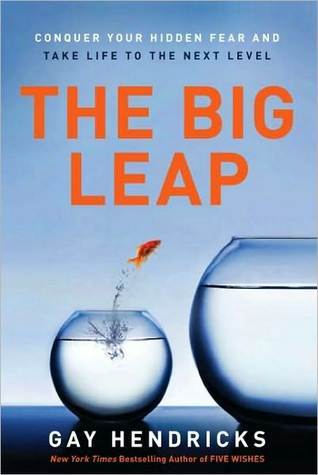More on this book
Community
Kindle Notes & Highlights
Read between
September 19 - September 26, 2023
Begin with a fundamental statement like this: I’m at my best when I’m _________ ___________________________________________.
Once you’ve come up with a simple, clear statement of you at your best, go a little deeper. Use a statement like the following to zoom in for a closer look: When I’m at my best, the exact thing I’m doing is _________________________________________________.
When I’m doing that, the thing I love most about it is ____________________________________________________.
art is in letting go of the wander-thoughts and returning to the mantra without giving yourself a hard time about wandering.
I expand in abundance, success, and love every day, as I inspire those around me to do the same.
Commitment gets you started and propels you through the early stages of any game, but it’s recommitment that ignites your reserves when you feel like you’re going to give up.
When you make the shift to Einstein Time, you experience a major surge in your productivity, creativity, and enjoyment. The shift takes place the moment you embrace one profoundly simple truth: You’re where time comes from.
my understanding of time was based on an outmoded, Newtonian paradigm. In that flash of insight I realized that Einstein’s paradigm was the way time actually worked.
Einstein Time gives you a way to expand the amount of time you have for creative expression and intimate connections. With Einstein Time, you not only save time; you’ll learn how to become the source of time
The Newtonian paradigm assumes that there’s a scarcity of time, which leads to an uncomfortable feeling of time urgency inside us.
At the heart of the Newtonian time crunch is a dualistic split: we are deluded into thinking that time is “out there,” an actual physical entity that can put pressure on us “in here.”
Newtonian dualism pits us against time. In this paradigm, we think of time as the master and us as its slave.
You’ll never have enough money to buy all the stuff you don’t really need, and you’ll never have enough time to do all the things you really don’t want to do.
since I’m the producer of time, I can make as much of it as I need!
What aspect of my life do I need to take full ownership of?
What does time pressure feel like in your body? What does being in a hurry feel like? What does the sluggish side of the time continuum—the sensation most people call “boredom”—feel like to you?
the essential move we all need to master is learning to handle more positive energy, success, and love. Instead of focusing on the past, we need to increase our tolerance for things going well in our lives now.
John Cuber and Peggy Harroff conducted one of the few in-depth studies ever done on the relationships of successful people. The authors found that 80 percent of the 437 successful people they studied had unsatisfying marriages and long-term relationships.
In devitalized relationships, the partners remained together in spite of having fallen out of love with each other years ago.
relationships often looked OK from the outside, but there was little or no passion between the individuals.
In passive-congenial relationships, the partners had never been passionate about each...
This highlight has been truncated due to consecutive passage length restrictions.
Their expectations were low, so they were seldom disappointed with each other.
In conflict-habituated relationships, the partners had created a lifestyle based around constant conflict.
A vast amount of energy can be liberated in relationships by dropping the habit of projection.
There are several ways we limit positive energy in relationships. One is by starting arguments, out of fear of intimacy, at times when we could be exchanging intimacy. Another is by withholding significant communications.
Another way we limit positive energy is by needing to control or dominate the other person (or needing to be controlled or dominated).
The Upper Limit Problem is our universal human tendency to sabotage ourselves when we have exceeded the artificial upper limit we have placed on ourselves.
The Upper Limit Problem is caused by a too-low thermostat setting on our ability to achieve and enjoy our ultimate success.
The first barrier is the false belief that we are fundamentally flawed in some way.
we sabotage our success because we think we’re essentially bad. If something good happens, we must mess up to offset it, because good things can’t happen to bad people.
The second barrier is the false belief that by succeeding, we are being disloyal to and leavin...
This highlight has been truncated due to consecutive passage length restrictions.
The third barrier is the false belief that we are a burden in the world.
The fourth barrier is the false belief that we must dim the bright lights of our brilliance so that we won’t outshine someone in our past.
We transcend our Upper Limit Problem each time we make more room inside us to feel more love, abundance, and success.


